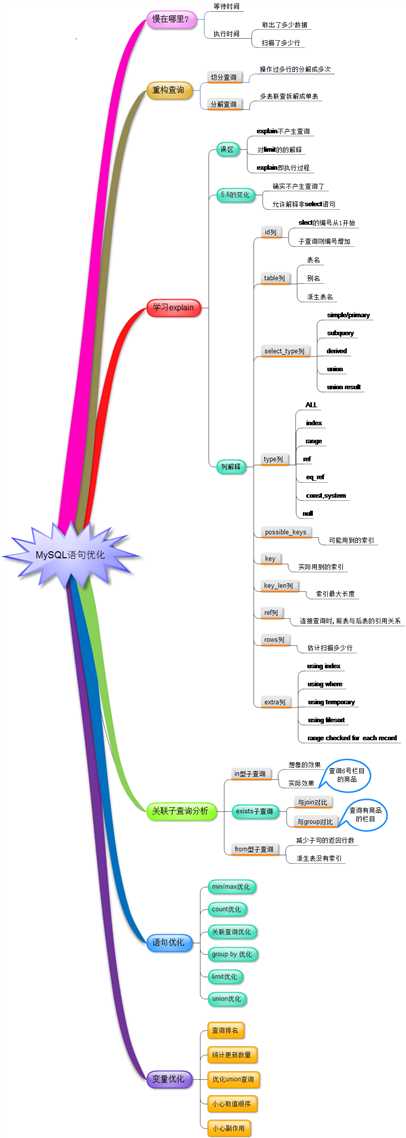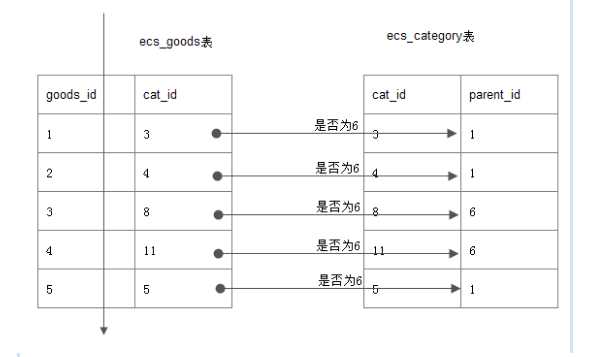
1.int型子查询陷阱
题: 在ecshop商城表中,查询6号栏目的商品, (注,6号是一个大栏目)
最直观的: mysql> select goods_id,cat_id,goods_name from goods where cat_id in (select cat_id from ecs_category where parent_id=6);
误区: 给我们的感觉是, 先查到内层的6号栏目的子栏目,如7,8,9,11
然后外层, cat_id in (7,8,9,11)
事实: 如下图, goods表全扫描, 并逐行与category表对照,看parent_id=6是否成立

原因: mysql的查询优化器,针对In型做优化,被改成了exists的执行效果.
当goods表越大时, 查询速度越慢.
总结:in 查询不是我们想的那样,而是逐行扫描外层的数据去匹配里面,因此查询效率低下。
改进: 用连接查询来代替子查询
explain select goods_id,g.cat_id,g.goods_name from goods as g inner join (select cat_id from ecs_category where parent_id=6) as t using(cat_id) \G
内层 select cat_id from ecs_category where parent_id=6 ; 用到Parent_id索引, 返回4行
2 exists子查询
题: 查询有商品的栏目.
按上面的理解,我们用join来操作,如下:
mysql> select c.cat_id,cat_name from ecs_category as c inner join goods as g on c.cat_id=g.cat_id group by cat_name;
3.优化规则:
优化1: 在group时, 用带有索引的列来group, 速度会稍快一些,另外,用int型 比 char型 分组,也要快一些.
优化2: 在group时, 我们假设只取了A表的内容,group by 的列,尽量用A表的列,会比B表的列要快.
优化3: 从语义上去优化
select cat_id,cat_name from ecs_category where exists(select *from goods where goods.cat_id=ecs_category.cat_id)
优化4:
from 型子查询:
注意::内层from语句查到的临时表, 是没有索引的.所以: from的返回内容要尽量少.
